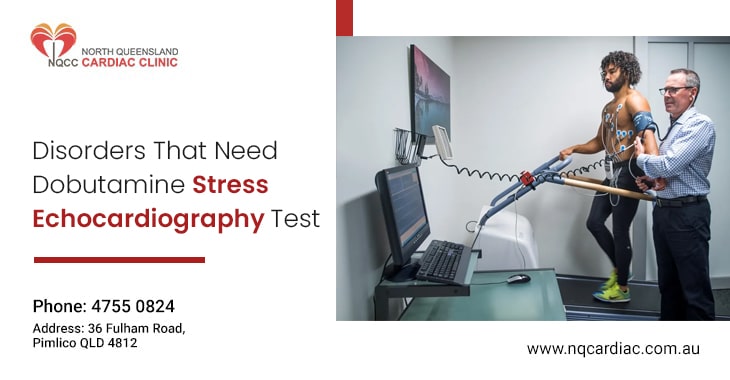The Dobutamine Stress Echocardiography Test has emerged as an invaluable technique for assessing various cardiac conditions. DSE is a vital component of their diagnostic arsenal at the North Queensland Cardiac Clinic in Pimlico, led by renowned cardiologists Dr Dharmesh Anand and Dr Raibhan Yadav. In this blog, experts from Dobutamine Stress Echocardiography Test Clinic Pimlico share the disorders that often require a DSE Test for accurate diagnosis and management.
- Understanding Dobutamine Stress Echocardiography
- Common Disorders Requiring DSE
Understanding Dobutamine Stress Echocardiography:
Before delving into the specific disorders, let’s grasp the fundamentals of Dobutamine Stress Echocardiography. DSE is a non-invasive imaging procedure that combines echocardiography (ultrasound) with the administration of dobutamine, a medication that stimulates the heart to mimic the effects of exercise. This test is useful in evaluating the heart’s response to stress when physical exertion may be contraindicated or unfeasible.
Common Disorders Requiring DSE:
Coronary Artery Disease (CAD):
Coronary Artery Disease is a leading disorder resulting in heart-related mortality worldwide. The coronary arteries narrow down or get blocked by plaque buildup restricting blood flow to the muscles. DSE is an excellent diagnostic tool for CAD because it helps identify areas of reduced blood flow in the heart muscle, known as ischemia. By assessing the heart’s function under stress, DSE can detect CAD even in its early stages, allowing for timely intervention and prevention of heart attacks.
Valvular Heart Disease:
Valvular heart diseases like aortic stenosis and mitral regurgitation, involve abnormalities in the heart valves that can impair blood flow. DSE plays a crucial role in assessing the severity and impact of these conditions on the heart’s pumping ability. It helps cardiologists determine the appropriate course of treatment, which may include medication, valve repair, or replacement surgery.
Cardiomyopathies:
Cardiomyopathies are a group of heart diseases that affect the heart muscle’s structure and function. Dilated cardiomyopathy and hypertrophic cardiomyopathy are common examples. DSE allows physicians to assess the heart’s response to stress, helping to differentiate between various types of cardiomyopathies and tailor treatment accordingly. This personalised approach improves patient outcomes and quality of life.
Ischemic Heart Disease:
Ischemic heart disease encompasses a range of conditions caused by reduced blood flow to the heart, including angina and myocardial infarction (heart attack). DSE can detect areas of the heart that are not receiving sufficient blood supply, allowing cardiologists to make informed decisions about revascularisation procedures like angioplasty or coronary artery bypass surgery.
Monitoring Cardiac Rehabilitation:
Patients often undergo cardiac rehabilitation to regain strength and cardiovascular fitness after a cardiac event or surgery, such as coronary artery bypass grafting or heart valve replacement. DSE can be used to monitor their progress and assess the effectiveness of rehabilitation programs, ensuring that patients are on the right track towards a healthier heart.
Final Words
The Dobutamine Stress Echocardiography Test is valuable for diagnosing and managing cardiac disorders in the ever-evolving cardiology landscape. Under the expert guidance of Dr Dharmesh Anand and Dr Raibhan Yadav at the North Queensland Cardiac Clinic, the Dobutamine Stress Echocardiography Test Clinic Pimlico, this diagnostic procedure is helping patients receive timely and personalised care. If you or a loved one are experiencing symptoms related to these conditions, don’t hesitate to contact our clinic for a comprehensive evaluation that may include a Dobutamine Stress Echocardiography Test. Your heart health is our priority; together, we can pave the way to a healthier future.


